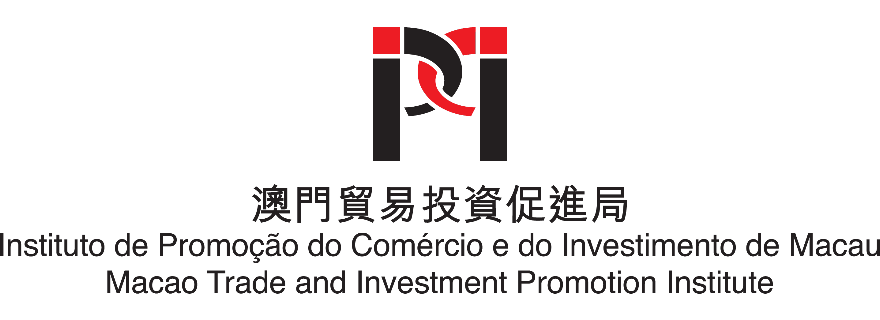Development Orientation
The Outline of the 14th Five-year Plan (2021-2025) for National Economic and Social Development and the Long-Range Objectives through the Year 2035 explicitly supports Macao in enriching itself as a World Centre of Tourism and Leisure, working with Guangdong to develop Hengqin, expanding its function as a Commercial and Trade Co-operation Service Platform between China and Portuguese-speaking Countries (PSCs), developing Macao into a base of exchange and co-operation with traditional Chinese culture as mainstream and other cultures flourishing in harmony.
Giving full play to its strengths and based on its development position as “One Centre, One Platform, One Base”, Macao will step up its effort to nurture the big health industry that takes research, development and manufacturing of traditional Chinese medicine (TCM) as its core, modern financial services, high technology, exhibitions and conventions, commerce and trade, and culture and sports industries, in order to foster more economic boosters, construct an adequately diversified and sustainable industrial structure.
Second Five-Year Plan for Economic and Social Development of the Macao Special Administrative Region (2021-2025)
The 2nd Five-Year Plan defines the goals for Macao’s development, which involve strengthening the community’s ongoing momentum, vitality, creativity, competitiveness and sustainability of development. The Macao SAR Government will strive to realise the values of “exquisiteness, excellence, specialty, expertise, and beauty”, and build a modern, beautiful, happy, safe and harmonious Macao.
|
Five Key Areas in the 2nd Five-Year Plan 1. Expediting adequate economic diversification 2. Optimising social and livelihood development 3. Promoting development of a liveable city 4. Improving public governance 5. Integrating into overall national development |
Background and General Requirements
Basic Principles
– Leveraging advantages to achieve diversified development
– Market orientation and government guidelines
– Embracing tolerance and openness
– Innovation-driven, green development
– Overall planning and co-ordinated development
– Practical, realistic, pragmatic and promising
Overall Development Objectives
-To take full advantage of Macao’s special advantages and the national development opportunities.
In line with Macao’s positioning as “One Centre, One Platform, One Base” and the devel-opment direction defined in the 2nd Five-Year Plan, the “1+4” appropriate economic diver-sification strategy will be effectively implemented.
– To gradually elevate the share of the four major industries, and enhance the economic development momentum and overall competitiveness, in order to achieve a contribution to gross domestic product (GDP) of approximately 60% by non-gaming industries.
-
The Macao Special Administrative Region was established on 20 December 1999, where the Constitution of the People’s Republic of China and the Basic Law of the Macao SAR are followed, and the “One Country, Two Systems” policy is implemented. The city has a safe and stable society with a steadily developing economy.
-
Macao has a simple and low taxation system, with profits tax and salaries tax capped at 12%.
-
Macao allows the free flow of capital and adopts a currency board system with stable exchange rate. The issuance of patacas is completely supported by foreign exchange reserves.
-
Macao’s business operating principles are in line with international conventions and standards, and the same business incorporation procedures apply to both local and foreign investors, providing an ideal investment and business environment for all investors.
-
The city has 10 higher education institutions
-
The University of Macau and the Macau University of Science and Technology have made considerate progress and earnt a place in the Quacquarelli Symonds (QS) World University Rankings 2024 and the Times Higher Education (THE) World University Rankings 2024.
- The Macao Institute for Tourism Studies has been ranked 1st in both Macao and Asia, and 10th in the world in the QS World University Rankings 2023 by Subject (Hospitality & Leisure Management).
- As of November 2023, the Macao SAR grants the statutory exemption of visas or entry permits to nationals of 81 countries and regions.
- 144 countries and regions have agreed to grant visa exemptions or visas on arrival to holders of a Macao SAR passport.
-
As of November 2023, Macao has signed the Agreement for the Avoidance of Double Taxation and the Prevention of Fiscal Evasion with Respect to Taxes on Income with eight countries and regions, including Mainland China, Portugal, Belgium, Mozambique and Cape Verde etc., effectively reducing the taxes on cross-regional enterprises and the burden of individual taxation.
-
Macao has also signed the Tax Information Exchange Agreement with 16 countries including Australia, Sweden, India, the United Kingdom and Ireland, etc., in order to build a fair international taxation environment.
-
In fiscal year 2024, the Macao SAR Government exempted Macao enterprises from profits tax on income obtained or generated in Portuguese-speaking countries, but this is only limited to the income that has been taxed locally.
-
Mainland and Macao Closer Economic Partnership Arrangement (CEPA) has been implemented since 2004.
Ten supplementary agreements and several subsidiary agreements have since been signed, covering four economic and trade areas including Trade in Goods, Trade in Services, Investment, and Economic and Technical Co-operation.
-
The Macao SAR Government has become a member of more than 190 international organisations and mechanisms, such as the World Trade Organisation (WTO), the United Nations Educational, Scientific and Cultural Organisation (UNESCO) and the World Tourism Organisation (UNWTO), engaging in a wide range of activities and actively deepening its participation




